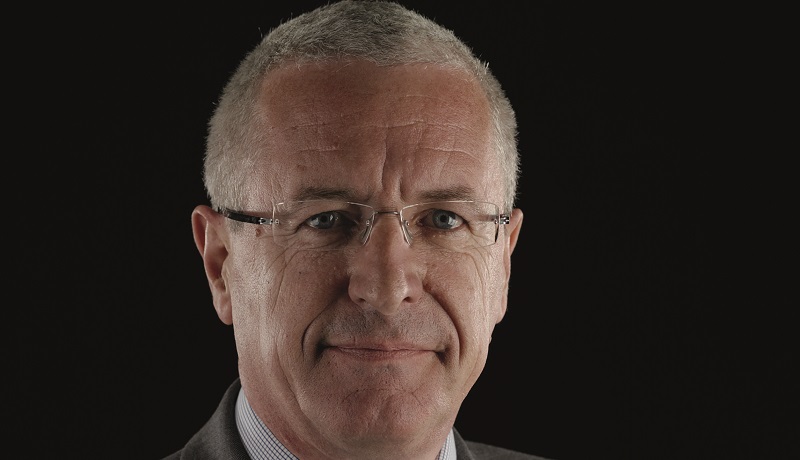Rathbone Unit Trust Management (RUTM) chief executive Mike Webb has made a plea to the Financial Conduct Authority (FCA) to… Just. Stop.
Webb said never before has he witnessed “such an inundation of regulation landing on the financial services industry at such a pace” and, while those operating in the sector were doing their absolute best to keep up, the constant regulatory overhaul – UK or European – is distracting from the more important objective of generating returns for end investors.
“The regulators must understand that we are doing our absolute best to cope with that level of change but if [they] keep changing the goalposts, we are going to get really confused,” he told a roomful of guests at an annual dinner on Wednesday, hosted by the asset management group.
Flying the flag for financial advice, he acknowledged the transparency being sought through much of the asset management market study was needed but warned of the fine line that needed to be trod to avoid inundating end investors with too much information, otherwise the study would be counterproductive.
“If you are starting from a background where 52% of people buying an Isa don’t know what an Isa is, you are never going to explain that on two sides of A4.
“So people need to understand the risks they are taking, but we need to be careful we do not inundate the consumer with too much information that doesn’t help them when making those decisions.”
Funds industry misguided on ESG
Turning to opportunities for the asset management industry, Webb identified sustainable investing as “one of the biggest themes across the investment sector for the next 10 years” and suggested groups assuming it to be purely a play on the millennial generation were somewhat misguided.
“This is not just about millennials and not just about the ‘dark green’ ESG investing.”
He said there was a collective heightened awareness of an entire generation that they needed to change their behaviour.
Webb added: “The media content is affecting people like my mum who is 88. That generation, our generation, who are living life differently, aware they have a deep responsibility to start being a role model for the younger generation if we are going to make a difference towards, say, climate change. This is not just a millennial issue this is touching everybody because they are starting to care more.”
Impact versus ESG
But Willis Owen head of personal investing Adrian Lowcock believes the jury is still out on impact investing.
“I think it’s an interesting area, but it’s all too easy to launch a fund and say ‘we’re doing impact investing’. It’s much harder to actually look at what that impact is or will be, and to get that right.
“I think that space is a bit closer to the ‘doing social good’, but largely unproven as to whether they are delivering investment returns. But having said that, the space is evolving very quickly, and all generally for the better.”
Webb said the onus was on them to drive the shift away from simply negative screening, with which Lowcock agreed.
According to Morningstar, 290 new sustainable funds were launched last year across Europe, expanding the available toolkit and they stacked up well against more conventional peers, with 62% finishing 2018 in the top half of their Morningstar categories.
Appetite, rightly, is here to stay. The European sustainable fund market saw net flows of €34.4bn (£29.5bn) in 2018, down from €57.9bn the year before, but Morningstar said the 40% decline in new money was smaller than the 80% slump suffered by the broader European fund universe.
Morningstar’s director of passive strategies and sustainability research Hortense Bioy said: “Most of these new funds aim to deliver a better ESG outcome than conventional offerings, typically by tilting towards companies with better sustainability profiles and excluding or underweighting companies with poor sustainability profiles.
“Other new funds aim to achieve impact alongside financial returns [and] with growing concerns about climate change, we also saw a host of new funds targeting climate-related risks and opportunities.”
Jumping on the sustainability bandwagon
Lowcock said his investment research went beyond just ethical funds and the scrutiny was more about the sustainable and ESG credentials being incorporated by fund groups overall.
The space is enjoying a significant increase in the attention being paid to the quality of corporate governance and serious investment going into building ESG teams and developing those credentials, which he expected to continue.
While there was clearly a bandwagon on which many were jumping, Lowcock said there were certain groups who had a headstart on ‘the pack’ by being more proactive on this area of the market before it became in vogue, naming Hermes, Kames, First State and BMO Global Asset Management as among the leaders.
Webb rebuffed the reticence of industry players for upping their ESG games, citing a lack of consistency.
He said: “Yes, it does mean different things to different people, but define what you mean by it and [stand by that]. For example, with our Global Sustainability fund [that launched last summer], it is about trying to tether it to the United Nations’ Sustainable Development Goals, so we want everybody to try and do the same thing.”







